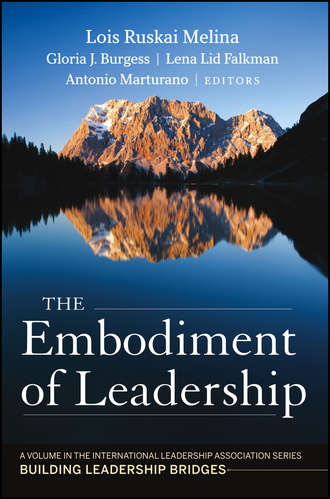
Полная версия
Covering leadership in the arts and humanities, this volume integrates critical theory with authentic leadership development, exploring the notion that leadership is both a discursive practice and a performative identity. Each year the International Leadership Association publishes a book that captures the best contemporary thinking about leadership from a diverse range of scholars, practitioners, and educators working in the field of leadership studies. In keeping with the mission of the ILA, the International Leadership Series Building Leadership Bridges connects ways of researching, imagining, and experiencing leadership across cultures, over time, and around the world. Praise for The Embodiment of Leadership «Read this book to experience an artistic and more robust sense of leadership; to rise to the challenge to gain alignment in mind, body, and spirit; and to heed the call to heal the shadows we as leaders sometimes cast over our collective humanity. Read this book to become more whole.» —Shann Ray Ferch, professor of leadership studies, Gonzaga University «For once leadership expertsconsider the mind-body problem from the perspective of the latter—the body. Those with an interest inhow the body is brought to bear on the exercise ofleadership would do wellto exploreThe Embodiment of Leadership.» —Barbara Kellerman, James MacGregor Burns Lecturer in Public Leadership, John F. Kennedy School of Government, Harvard University «The Embodiment of Leadership goes beyond the banal by using our body experiences as the point of departure in deciphering the leadership conundrum. Anyone interested in the study of leadership would do well to pay attention to this book.» —Manfred F. R. Kets de Vries, Distinguished Clinical Professor of Leadership and Organiza-tional Change, The Raoul de Vitry d'Avaucourt Chaired Professor of Leadership Development, INSEAD «Leadership is a social construction. The Embodiment of Leadership presents a multifaceted approach to understanding how we, as a society, define, create, and contend with leaders and leadership. Serious scholars and students of leadership need to read this.» —Ronald E. Riggio, Kravis Leadership Institute, Claremont McKenna College

